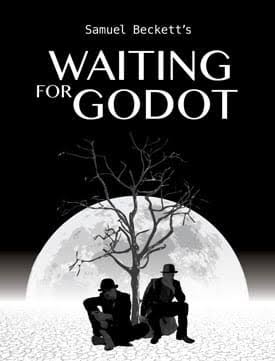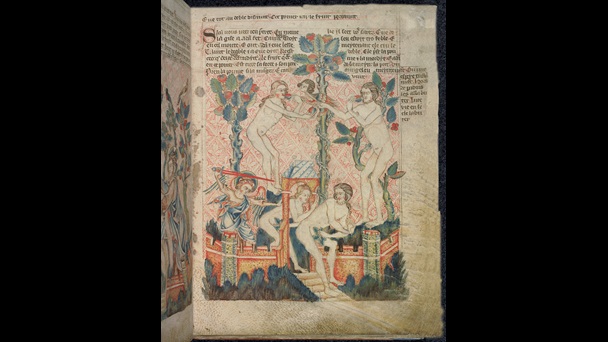Assignment
Name : Nishtha Makwana
Submitted to the Department of English, MKBU.
Roll No. 15
Paper : The Modern Literature
Topic : The Concept of memory in Waiting For Godot
Words : 1810
Abstract :
As we know that Samuel Beckett's Waiting For Godot is one of the most famous absurd plays, which raises some universal questions. Samuel Buckett has used some of things which seem very silly and funny but it has deep meaning. Memory plays a vital role in our life. Sometimes it gives pleasure and sometimes it gives plain. But when we refer to Existentialism then we find one question and that is why we are here? And Time plays a very vital role in this, because we don't know we are passing the time or time is passing through us. Thus, in this play the concept of memory is significant. Here in this assignment I have some questions and I'm trying to find the answers with the help of some references.
Literature Review
Samuel Buckett's 'Waiting for Godot' is an absurd play. There are a lot of research papers on Waiting for Godot as an Absurd play. The representation of memory in the play also plays a vital role. On representation of memory we can find research articles like "I remember the maps of the holy land": The role of Memory in Waiting for Godot and Six Characters in Search of An Author by Mirielle Smith. Then The Treatment of Memory in Buckett's Waiting for Godot and Happy Days by Aron. And there are a lot of research articles on it. This particular present paper is focuses on the connection between memory and desire. And how Indian philosophy looks at memory and how Buckett has used the concept of memory.
Research Questions
The study will concentrate on the following questions
Does morality come from memory?
Is there any connection between memory and desire?
Can we survive without memory power?
How symbolically is memory present in the play?
Research methodology :
This particular assignment has some arguments with several other research articles. This assignment has work citation, the articles which support some arguments or some are not supported. There are some references from the original text also.
Introduction
Waiting For Godot - a play of absurdity of life, a play which questions the existence of humans, a play about the meaninglessness of life, about the hopelessness of life. The play is the best example of Absurd theater. And this absurd play is written By the most celebrated playwright Samuel Beckett. It is a translation of his own work which was originally written in French 'En Attendant Godot', and it was composed between 9 October 1948 and 29 January 1949. The English Language version premiered in London in 1955. It was voted
'The most significant English language play of the 20th century'
If we just watch the play for the sake of entanglement then it will never entertain you. It is a deeply philosophical play, which questions the whole meaning of our life. It is an example of Existentialism also. Rather than this it is Nihilism play. There is no hope, no life, no belief and no life. There is mere rubbishness in life. Life itself is meaningless. It questions the existence of God. It raises so many universal questions like..
Does God Exist?
What is the purpose of our life?
When we see in Bhagavad Gita then there is purpose behind our life. But it is a holy book which is talking about the philosophy of life. Waiting For Godot deconstructs these types of ideas.
About the Author:
Samuel Beckett(born on April 13, in the year 1906 in Dublin, Ireland) was an Irish playwright, poet, actor, theater director, novelist, short story writer and a translator. He is best known for his work Waiting for Godot. He wrote in both languages French and English. He is best known for the literature which he has written after World war 2nd to the 1960s. In 1969 he was awarded with the Nobel Prize for literature. He was influenced by other writers such as Dante, Rene Descartes, and James Joyce, which reflected in his works. His most famous works are…
Murphy (1938),
Waiting for Godot (1953),
Krapp's Last Tape (1958)
Happy Days (1961).
He died on 22 December, 1989. As he says..
'The end is the beginning and yet you go on'
The concept of Memory in Waiting for Godot :
Samuel Beckett represents the concept memory in this play to make this play more absurd. The way he treated memory shows something deeper than one thing. We have these misconceptions about memory that if you can remember properly you are intelligent. Here in the play all characters are suffering from memory loss. Shows the meaninglessness of life. Accept Vladimir all other characters have short term memory. Then here we have one question..
Why does Vladimir not suffer from memory loss?
He is in more confusion than other characters just because of memory, so the memory is the problem of our absurdity? The most significant dialogue from Vladimir is..
“Extraordinary the tricks that memory plays!”
We can find that memory plays a vital role in our life. Now let's see what psychology says about memory
Psychological meaning :
Memory is like data storage. Which stores our past or information about the past, it is encoded, stored and retrieved when needed. Memory loss is described as forgetfulness or amnesia. It is not a perfect process, it can be corrupted. And if we don't remember our past then there will be no balance in our life. But there is no such a meaning of life, everything is rubbish, life itself rubbish.
Memory and Desire :
Here we have several questions for example
Does desire come from memory?
Does desire make our life meaningless or does it give meaning to life?
How memory and desire are connected with each other?
Well, everyone has their own interpretations and meanings for this. Here I'm giving one reference of Indian and Budhdhism philosophy which claim that everything comes from memory. Kisor Kumar Chakrabarti in his book 'Classical Indian philosophy of Mind' The Nyaya Dualist Tradition takes the example of Indian and Buddha theory of Memory. Vatsyayana explained how each of the six involves memory.
Desire involves memory in which when one finds something to be pleasant one may later have the desire for it from remembering that it is pleasant.
We all have desires and we wait for it. But some desires never come, and we just pass our time. Vladimir and Estragon both are waiting, a desire to meet Godot led him to do waiting, and that waiting never ends. Estragon has a problem of short term memory, so he has no desire to meet Mr. Godot. Everyone is forgetting everything (except Vladimir) and that is why things repeatedly come into play. For example these lines come six times in the play..
Estragon: Let’s go.
Vladimir: We can’t.
Estragon: Why not?
Vladimir: We’re waiting for Godot.
Waiting shows the inner desire. We all are suffering to fulfill our all desires, but Beckett wants to show that there is nothing like desire and pleasant. Even after fulfillment of our desire does one make sure that he or she will find happiness or pleasure? Life is full of absurdity. Vatsyayana Says..
"Pleasure and pain may involve memory in that from the remembrance of pleasure and pain one may direct one's efforts towards the sources of those and experience pleasure and pain accordingly"
Pain and happiness can be our assumption. All and over according to Vatsyayana and Gotama desire, aversion and volition involved memory. And all this requires memory, from which the self is inferred. For the permanence of self. But when we see in Waiting for godot characters are forgetting incidents which show the existence of one's and questioning the permanency of self.
This point of view is just from hindu philosophy, there are many other philosophies about memory and desire.
Can we survive without memory power ?
Does morality come with memory?
This question can be answered or not, that is also one confusion. If we refer again to that Indian research book then we find that without memory there is no permanency of life and there is no balance in our life. If we forget what we have done yesterday, we will do those things again in future. There is also one question that..
Does absurdity come from memory?
If we recognize the past then there is anxiety and absurdity. If we read or watch the play then this conversation is very mysterious..
VLADIMIR: Off we go again. (Pause.) Do you not recognize me?
BOY: No Sir.
VLADIMIR: It wasn't you came yesterday.
BOY: No Sir.
VLADIMIR:This is your first time.
BOY:Yes Sir.
Silence.
VLADIMIR: You have a message from Mr. Godot.
BOY:Yes Sir.
VLADIMIR:He won't come this evening.
BOY:No Sir.
VLADIMIR:But he'll come tomorrow.
BOY:Yes Sir.
VLADIMIR:Without fail.
BOY:Yes Sir.
Silence.
Through this conversation we find that Vladimir is a little bit frustrated because he is confused, but nobody around him recognizes anything. Nobody is anxious except Vladimir, because he recognizes everything. So we can say that memory is which makes our life absurd. But without memory there is also no meaning of our life. All in one human existence is absurd.
Memory or Vladimir's illusion :
In the play there are incidents which are happening twice. But is it really happening or not or it is just an illusion of Vladimir? We are looking through the character of Vladimir, so for us what Vladimir thinks and sees becomes the truth. In our life there are also illustrations but sometimes we feel this as reality. Perhaps Buckett tried to deconstruct the idea of our illusionary life.
Conclusion
To conclude this discussion I would like to say that finding meanings is also meaningless but still we try to find meaning of all these things. Some questions can just be asked and we can not find the ultimate answer. As Buckett says…
We enter, we shout
And that's life.
We shout, we go out,
And it's death.
Work Cited
Aaron. "The Treatment Of Memory In Beckett`s Waiting For Godot And Happy Days." Tutor Hunt - Private Tutors & Personal Tutors For Home Tuition, 13 Aug. 2013, www.tutorhunt.com/resource/6574. Accessed 5 Dec. 2020.
Blog
Beckett, Samuel, 1906-1989. Waiting for Godot: Tragicomedy In 2 Acts. New York: Grove Press, 1954.
Chakrabarti, Kisor K. "The Existence of permanence of the self." Classical Indian Philosophy of Mind: The Nyaya Dualist Tradition, 1st ed., Pdf file, SUNY P, 1999.
Book
Smith, Mirielle. "“I Remember the Maps of the Holy Land”: The Role of Memory in Waiting for Godot and Six Characters in Search of an Author." Mirielle Smith, 15 Sept. 2013, miriellesmith.wordpress.com/2013/05/02/criticalwriting2/. Accessed 5 Dec. 2020.
Blog









1 Comments
Good
ReplyDelete